May 29, 2025
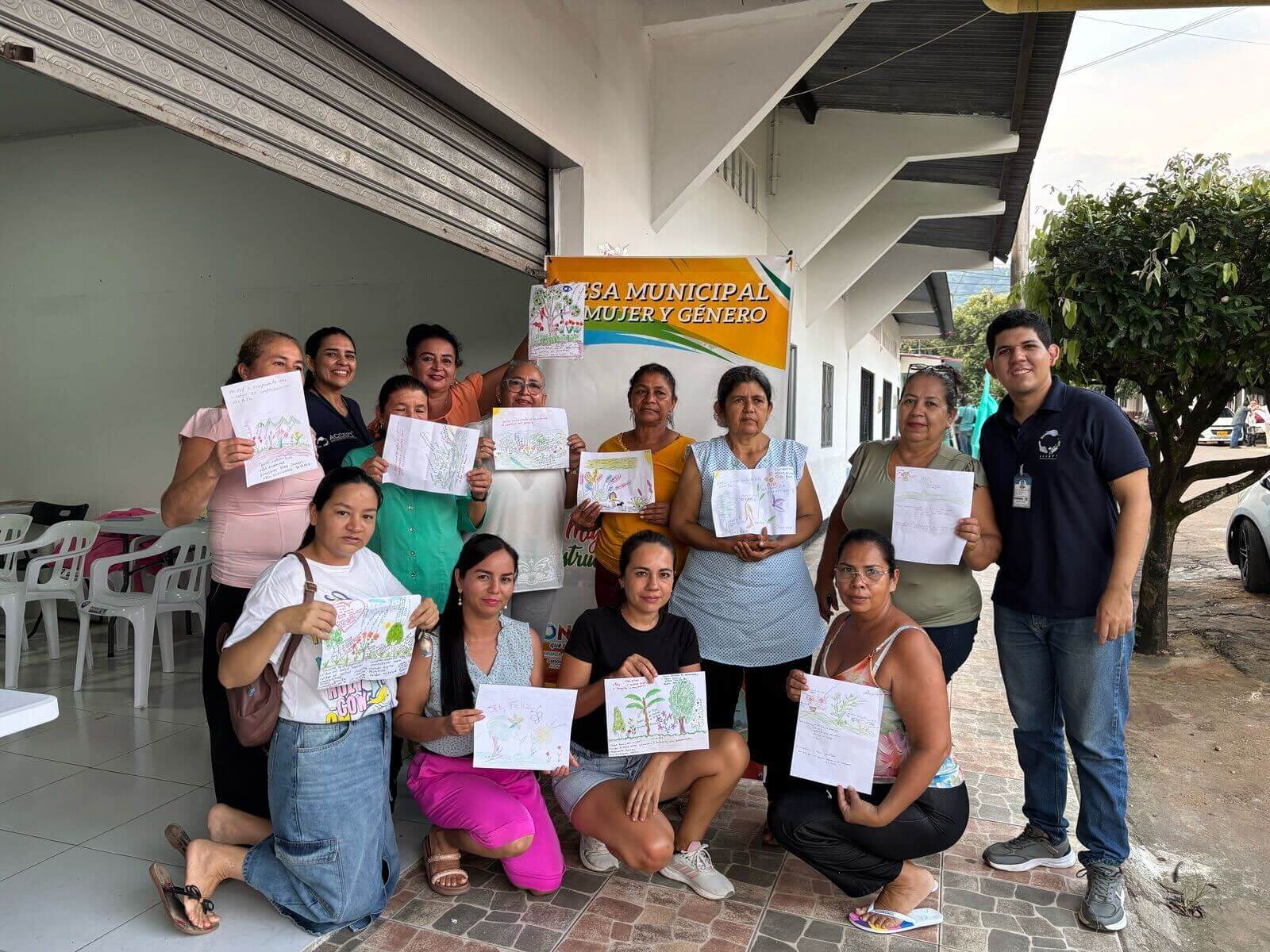
We are pleased to share with you activities from the Colombia Project Division, focusing this time on vocational training and psychological support for female former FARC members and victims of conflict.
1. Background of Activities in Colombia
When people think of Colombia, many may think of coffee or soccer. Economically, it is considered an upper-middle-income country: it ranks 38th in the world in nominal GDP, and 91st per capita. Colombia joined the OECD in 2020.
On the other hand, it is said to have the largest number of internally displaced people in the world.
After more than 50 years of civil war involving armed groups including the Revolutionary Armed Forces of Colombia (FARC) and government forces – driven by deep inequalities and limited political participation for vulnerable populations – a peace agreement was signed in 2016. However, some former FARC members remain marginalized from their communities, and reconciliation with local communities has not progressed sufficiently.
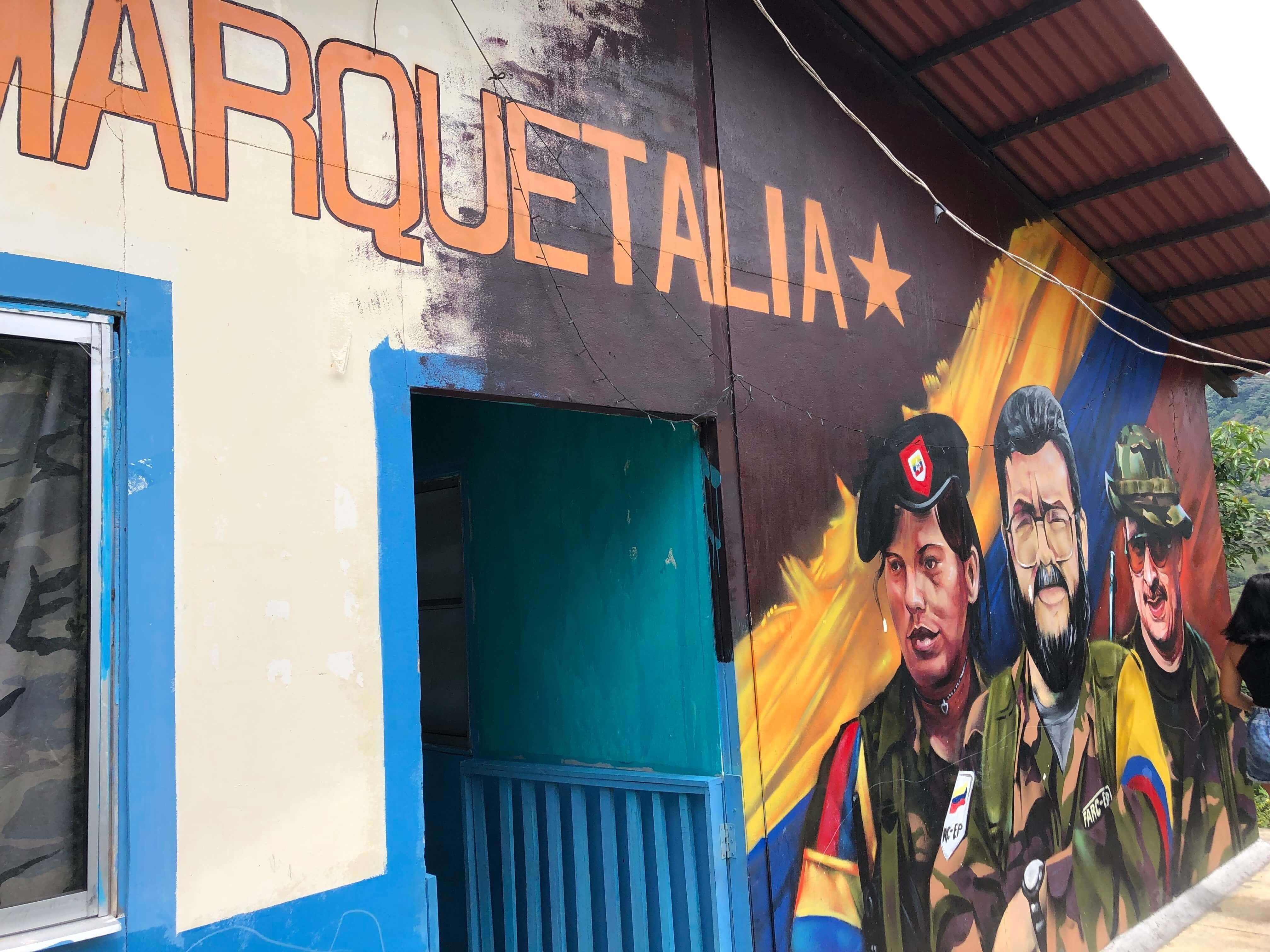 ▲ Murals of the Revolutionary Armed Forces of Colombia (FARC) still remain on houses in the area
▲ Murals of the Revolutionary Armed Forces of Colombia (FARC) still remain on houses in the area
Many former FARC members who have signed the peace agreement and are participating in the reintegration process live in government-run reintegration camps. However, their connections with local communities are weak, and their economic situation remains unstable. Moreover, parts of the peace agreement have not been fully implemented by the government; negative attitudes toward former combatants persist; there continue to be assassinations. These are substantial ongoing challenges.
Additionally, while many organizations provide support to victims of conflict, support specifically for former FARC members is very limited, which is a major factor holding back their reintegration. In some cases, armed groups are expanding their influence around areas where former members live, putting them and their families at risk. Often, they are forced to relocate repeatedly.
These conditions deepen division and inequality in society and increase the risk that young people will be drawn into violence. In fact, some former combatants are forming or rejoining armed groups and becoming involved in violent or criminal activities, such as drug trafficking. As a result, local security deteriorates, and the cycle of hatred continues.
2. What We Are Doing in Colombia
Within Colombia, we are particularly active in the Caquetá Department, which has a high population of former FARC members. Under commission from the Japanese Ministry of Foreign Affairs, we engage in:
– Designing and carrying out reintegration programs;
– Building a multipurpose facility for implementing those programs;
– Training government officials;
– Vocational training aimed at acquiring life skills.
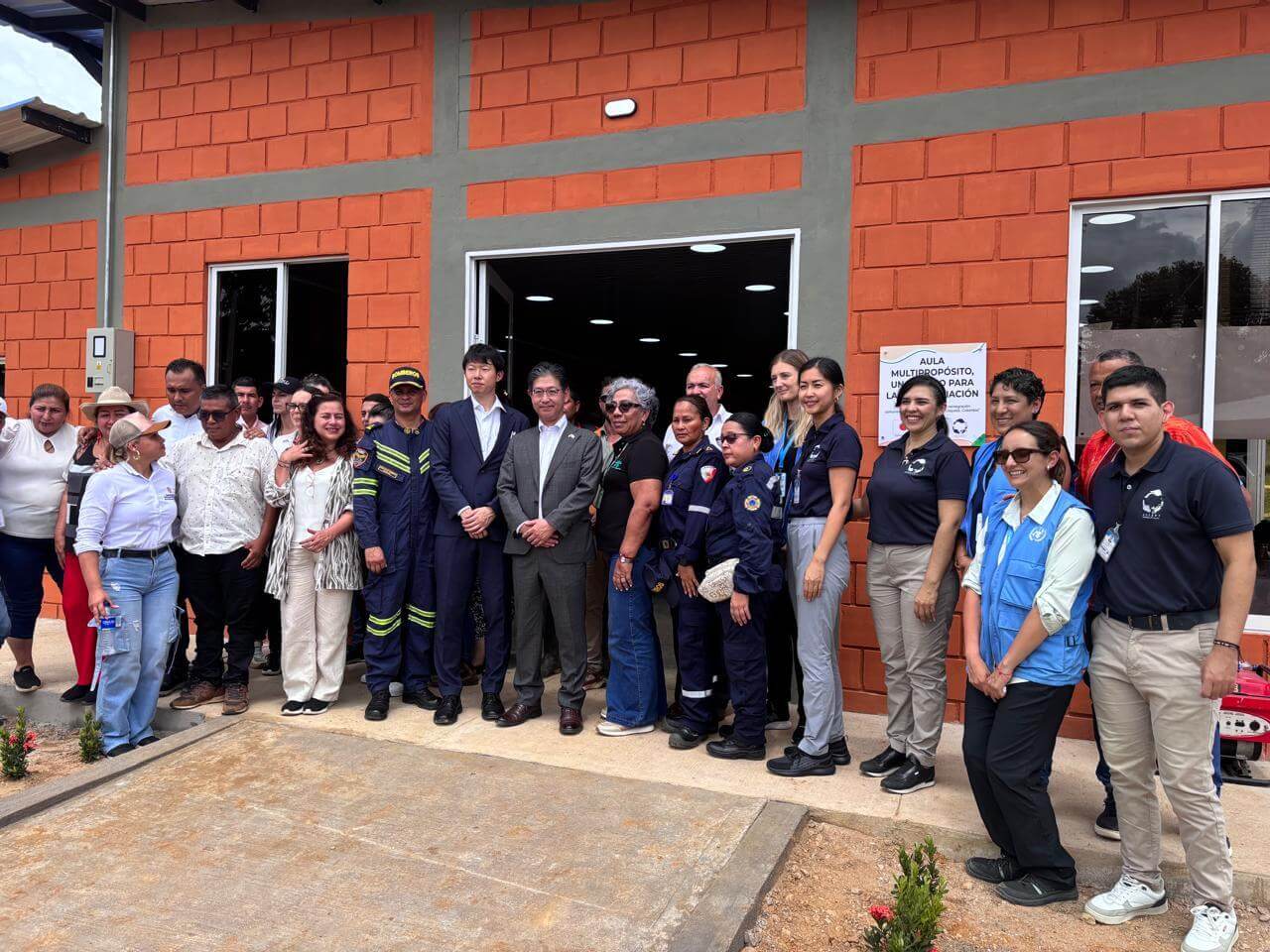 ▲Opening ceremony of the multipurpose facility for providing reintegration programs.
▲Opening ceremony of the multipurpose facility for providing reintegration programs.
In this report, we describe in detail a two-month vocational training and psychosocial care initiative jointly carried out with municipal governments, directed at female former FARC members and female victims of conflict.
Vocational Training & Psychosocial Care
Although a peace agreement has been signed (unlike in Somalia or Yemen), many of its provisions are unfulfilled, and opportunities for former combatants to acquire professional skills and secure stable employment are limited.
To address this, we are offering vocational training in areas such as fish farming, dairy farming, and tourism guiding. The training is open to both men and women. The goal is that by learning skills grounded in local needs, former combatants can not only support themselves but also contribute to community life.
A distinctive aspect in Colombia is that many women fought as combatants. Both women who are former combatants and women who are victims of conflict often bear full responsibility for domestic work. Because of this, opportunities for them to get professional skills or psychological care tend to be postponed. Some have experienced deep emotional trauma or sexual violence, so the need for psychosocial support is high.
In response to this background, we held a 2-month program for women (including former FARC members and conflict victims), combining sewing training and counseling.
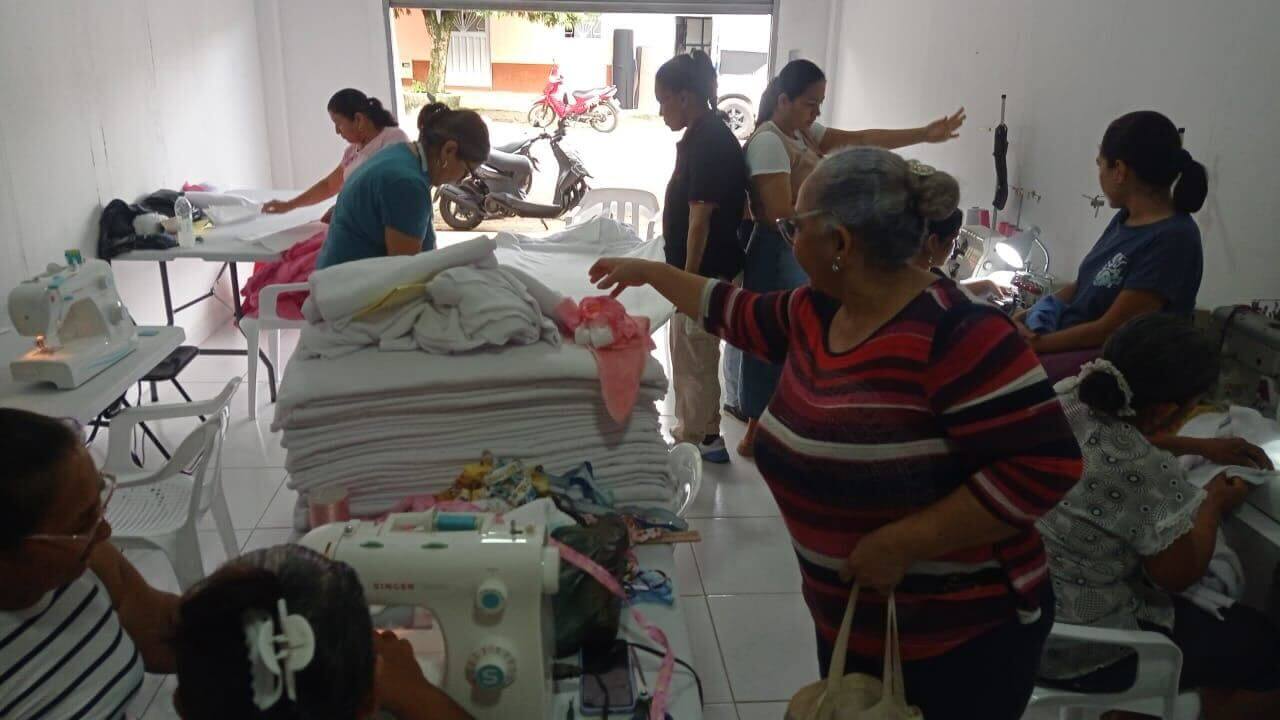 ▲Sewing Training
▲Sewing Training
In the sewing training, participants learned stitching techniques using sewing machines, acquiring skills necessary for employment. In this area, sewing is seen as especially effective for women in making a living.
In psychosocial care, we ran psychological sessions under the theme “Nurturing My Happiness.”
These began with deep breathing and gentle movements, inviting participants to “listen to their bodies.”
Then there was a session reflecting on what self-care means. Many participants said they realized they had long prioritized household and domestic responsibilities to the point that their own health and wellbeing were neglected. They noted that small actions — taking rest, talking to someone, participating in group activities — are important parts of self-care.
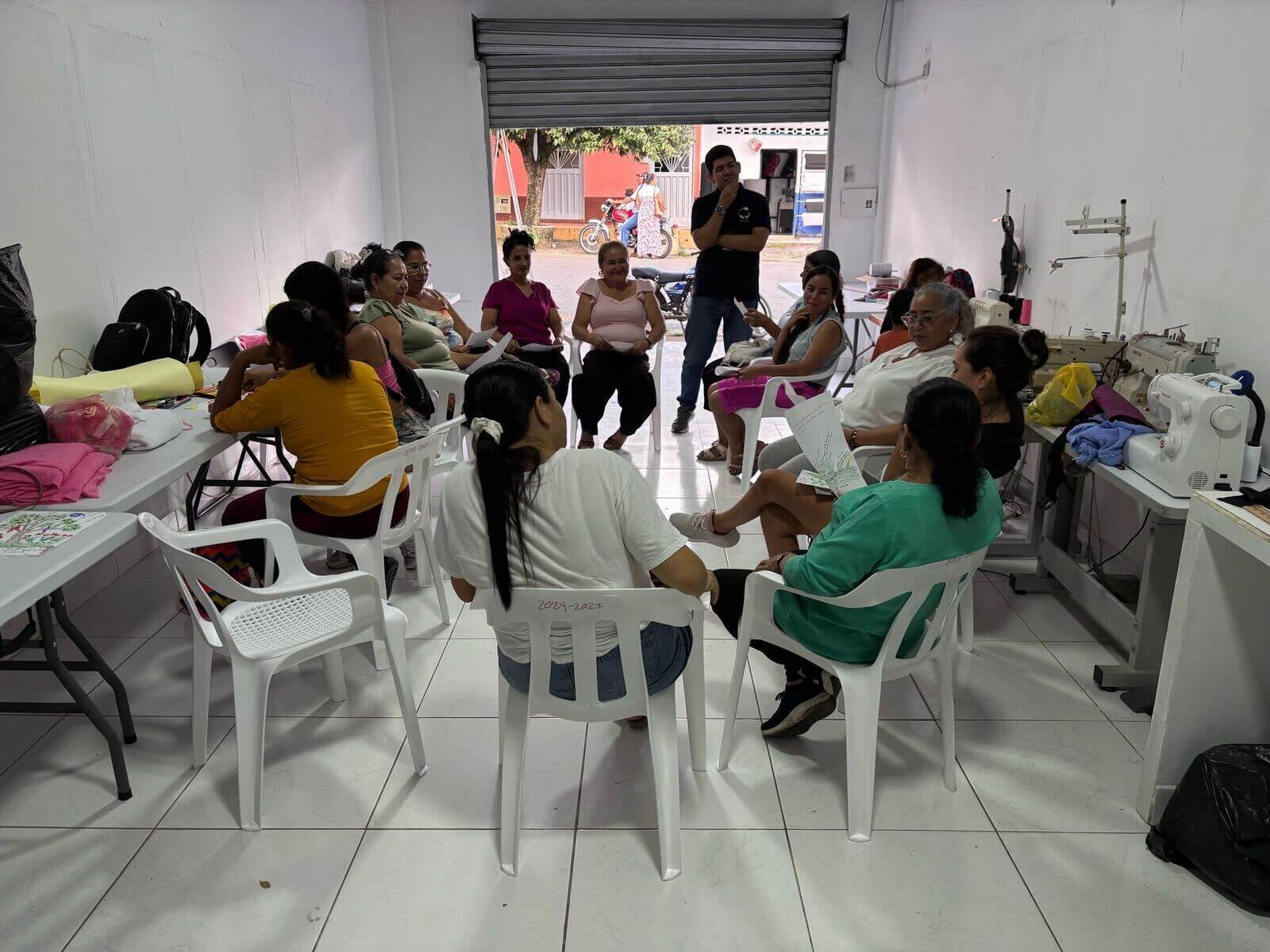 ▲Psychological Sessions
▲Psychological Sessions
Later there was an art activity, drawing, through which participants revisited what is important in their lives and their own values.
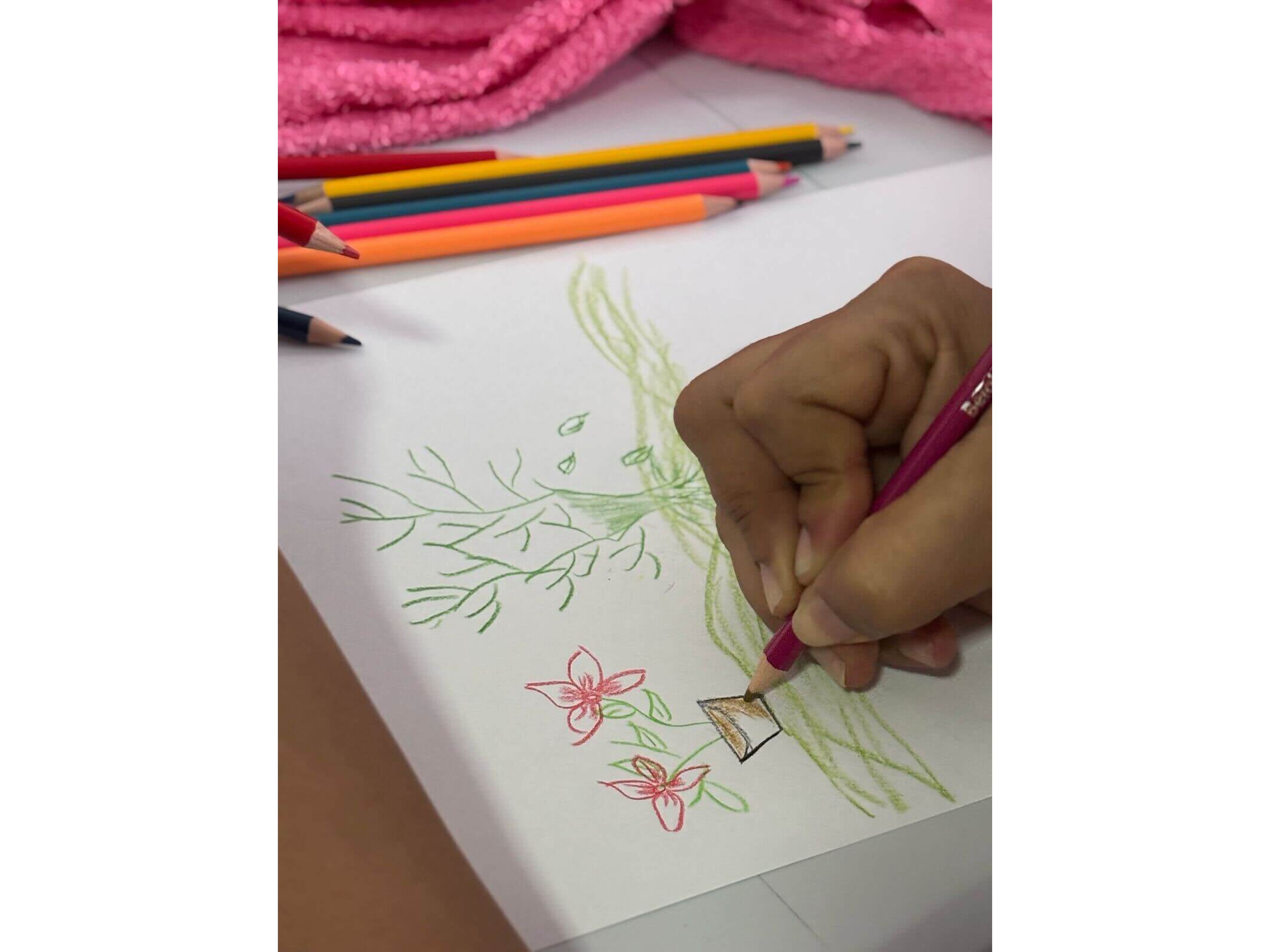 ▲A drawing made during the session. For example, the ‘roots’ represent people or values that give strength and support. By assigning meaning to each drawing, the session became an opportunity to re-acknowledge what is important to them.
▲A drawing made during the session. For example, the ‘roots’ represent people or values that give strength and support. By assigning meaning to each drawing, the session became an opportunity to re-acknowledge what is important to them.
The sessions were done with women former FARC members and women conflict victims together, to provide opportunities to understand each other’s backgrounds and sentiments. Some participants became emotionally stirred during sessions, but in a safe environment, with space to face their feelings, by the end, many were able to show that they could begin to control their emotions.
We also heard directly from participants:
“I had never learned how to do self-care. From now on, I want to receive more counseling.”
“I’ve never seen an international NGO doing this kind of work in this area before — it’s groundbreaking. I hope support continues.”
3. Future Prospects
Many former FARC members and conflict victims carry deep wounds and trauma. Therefore, moving forward, we plan to consider and implement more individualized psychological care tailored to each person’s situation and needs.
Also, with the newly established multipurpose facility for delivering reintegration programs, we aim to provide comprehensive support so that former FARC members can live not with weapons, but as bearers of peace within their communities. At the same time, we plan to create opportunities for dialogue to promote mutual understanding with local communities.
4. Finally — A Word from a Staff Member of Accept International
Hello, I am Mayo, in charge of the Colombia project.
Thanks to preparatory fieldwork by our representative Yosuke, and staff Mizuki and Megumi, who built relationships with local stakeholders, I was able to start our activities smoothly when I joined.
The area we work in is a reintegration camp with almost no supporters beyond government bodies — each former FARC member had high expectations from the start, and many expressed that they want this project to succeed, also to attract more support. Their strong wishes have been clear.
Since I am new to this initiative, communication wasn’t always easy. But local staff (two people, Dayvi and Sebastián) meet in person with former FARC members and the community every three days, combining vocational training and care counseling in ways that match needs, so we’ve been trying to walk alongside them to meet their expectations as much as possible.
The multipurpose facility will be completed in May. This is just the first step in community development and reconciliation. Going forward, while continuing fundraising, I will strive, together with staff in Japan and colombia, to provide more effective and distinctly Accept-style support. Thank you for your ongoing support and cooperation.
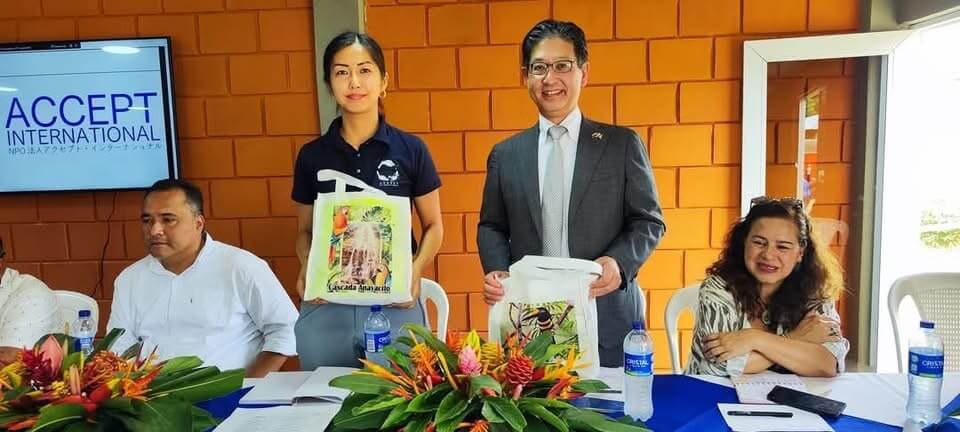 ▲Our staff member Suzuki (second from the left) and Mr. Takasugi, Ambassador of Japan to Colombia (second from the right).
▲Our staff member Suzuki (second from the left) and Mr. Takasugi, Ambassador of Japan to Colombia (second from the right).
To our Readers
We are recruiting Accept Ambassadors, who can join our activities for 10 USD/month
We hope you will become ambassadors, stand with people caught in violence, help them find a way forward, and support linking this work to resolving conflict and terrorism globally.
Activity Reports










